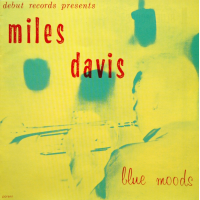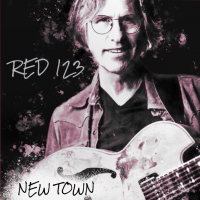Hi-Res Jazz
Hi-Res Jazz focuses on new and remastered jazz recordings released on SACD and hi-res downloads. Labels such as Songlines and Chesky in North America, Linn in the UK, Challenge and Fone in Europe, and reissue labels Analogue Productions and Mobile Fidelity, produce challenging new jazz music and remasters of classic titles with special attention to high quality sound. Nearly all new jazz production is captured at high resolution in the studio, and hundreds of contemporary and reissued titles are becoming available as downloads at their original recording or remastering resolutions. In a cultural climate where music too often functions as sonic wallpaper, where streaming services shortchange jazz artists and disrupt the integrity of album sequencing, the purchasing of hi-res discs and downloads (as well as new CDs) demonstrates support for the artists, keeps independent labels in business, and offers the listener a vivid recreation of musical performances.
Human Feel: Speak To It

by Mark Werlin
What is chamber jazz? The emergence of chamber jazz as a genre can be traced to the innovative sextet sides recorded in the mid-1930s by bandleader John Kirby, and to the trio and small-ensemble post-war recordings of Benny Goodman. By the late 1940s, the term 'chamber jazz' was widely used in industry publications such as Billboard magazine, academic journals, and newspaper and magazine reviews of performances by small groups. A distinction was drawn between chamber jazz and big-band ...
Continue ReadingNew Music in an Anxious Time: Teis Semey, Peggy Lee and Philipp Gropper

by Mark Werlin
Historians of jazz identify the African-American civil rights struggle circa 1945-1965 as the locus for the most active involvement of jazz music in expressions of social and political protest. One of the earliest recorded instances of explicit political protest in jazz, “Strange Fruit," was refused by Decca, singer Billie Holiday's record label, for fear of reprisals from Southern radio stations and record stores. The independent Commodore label released the record in 1939; a searing indictment of lynching and a landmark ...
Continue ReadingTRPTK: Breaking Genre Walls

by Mark Werlin
TRPTK, an independent new music label based in the Netherlands, produces hi-res recordings with astonishingly realistic sound quality. TRPTK's catalogue of jazz and new music erases the boundaries of musical genres, and pursues a commonality of purpose that overrides differences in cultural and national backgrounds. Æon Trio: Elegy Elegy, performed by the jazz ensemble Æon Trio of Japanese pianist-composer Atzko Kohashi, Dutch bassist Frans van der Hoeven and Russian-born cellist Maya Fridman, draws on the diverse streams of ...
Continue ReadingEric Dolphy: Gone In The Air

by Mark Werlin
Newly-remastered SACD reissues of Eric Dolphy's albums for the Prestige label mark the 90th anniversary of his birth. The recording sessions that Eric Dolphy led in the last four years of his life advanced the evolution of jazz. It was a tragedy that Eric Dolphy gave himself so completely and unselfishly to art that he neglected to attend to the mundane demands of bodily health. The impact of his death on June 29, 1964 at age 36 ...
Continue ReadingDálava, Gordon Grdina and Mikkel Ploug: Songs Old, and Sounds New

by Mark Werlin
Strangeness--a word that connotes foreignness, otherness, and a sense of unease when confronted by the unfamiliar. The sound of recognizable musical forms may attract us, in the same way we are drawn to familiar faces or voices. The sound of a foreign language may set us on the alert; syllables we do not recognize, meanings we cannot understand. And what if the words cannot always cross the boundary from one language to another, and the meanings never be ...
Continue ReadingCharles Mingus and Miles Davis: Changing Moods

by Mark Werlin
The recordings of Charles Mingus in the mid-1950s document a musical voice so distinctive that they are immediately recognizable today. But Mingus' obsessive commitment to the primacy of the composition was not always shared by his peers, nor understood by his critics. A public feud between Mingus, who was struggling unsuccessfully to win critical recognition and financial rewards, and Miles Davis, then poised for prominence and commercial success, contains clues to the musical conundrum that both sought to ...
Continue ReadingThe Westerlies: New Music For Brass In Hi Res

by Mark Werlin
The Westerlies, a self-titled album performed by an “accidental brass quartet" of two trumpet players and two trombonists, is a stunning accomplishment: a reference-quality recording of trans-genre new instrumental music that managed to beat the odds and reach a wide audience. The album's unexpected success points to the importance of curation in an overcrowded online music sphere. One track from the album, an arrangement of the English folk ballad “Saro," was promoted by Tom Huizenga, a music producer ...
Continue ReadingJohn Coltrane: Coltrane And Crescent—Shadows And Light

by Mark Werlin
Visual art is a play of shadow and light, and contrast makes the forms visible. In the best jazz music, there is a kind of inner light that emanates from the musicians, the light of creative impulse, the light of spontaneous artistic expression. Some jazz musicians--too many--cast their own shadows of addiction and self-destructiveness. But often--too often--new directions and developments in jazz are shadowed not by the musicians themselves, but by their detractors. A series of Impulse albums ...
Continue ReadingMiles Davis: In Time, All Changes

by Mark Werlin
Considered the most influential small jazz group of the middle 1960s, the Miles Davis “Second Great Quintet" has often been imitated but never equaled. Critical consensus holds that the revival of jazz in the 1980s was inspired by the six albums the Quintet recorded from 1965-1968. But a set of particular cultural and personal dynamics shaped the Quintet's recordings in ways that are unrepeatable. Mobile Fidelity's SACD reissue series of Miles Davis' Columbia LPs shines a spotlight on these rightfully ...
Continue ReadingSonglines: An Independent Voice for New Music

by Mark Werlin
The independent Vancouver-based record label Songlines Recordings was established in 1992. Inspired by the contemporary jazz music scene in Vancouver, label founder Tony Reif began recording Canadian, American, Dutch, German and French composer-performers. Over the next two decades, the core group of musicians who recorded frequently for Songlines included Benoît Delbecq, Harris Eisenstadt, Gordon Grdina, Wayne Horvitz, Francois Houle, Brad Shepik and Michael Blake. Plot a zig-zag route from Vancouver, Toronto, and Montreal, to San Francisco and Reno, from New ...
Continue Reading















